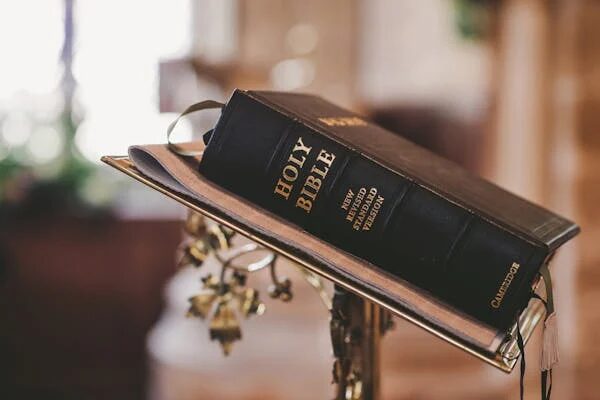Discover how many books are in the Bible, their structure, and which of the books in the biblical canon you should start with.
The Bible is one of the most widely read, studied, and influential books in human history. It is regarded as the sacred text of Christianity and serves as a foundation for faith, theology, and moral teachings.
One of the most common questions people ask is: how many books are in the Bible?
How many books are in the Bible?
The answer varies depending on the Christian tradition.
- Protestant Bible – 66 books (39 in the Old Testament, 27 in the New Testament)
- Catholic Bible – 73 books (includes 7 additional Deuterocanonical books)
- Eastern Orthodox Bible – 76 to 81 books (varies by tradition)
The Jewish Tanakh, which corresponds to the Old Testament, consists of 24 books, though it includes the same content as the Protestant Old Testament, but arranged differently.
Breakdown of the structure of the Bible
The Bible is divided into two major sections: the Old Testament and the New Testament. Each of these sections is further divided into different types of books based on their themes, purpose, and literary style. Below is a breakdown of the Bible’s structure.
1. The Pentateuch (The Torah or The Law) – 5 Books
The first five books of the Bible, traditionally attributed to Moses, are foundational to both Jewish and Christian beliefs. They provide the history of creation, early humanity, and God’s covenant with Israel.
- Genesis – Creation, the Fall, the Flood, and the Patriarchs (Abraham, Isaac, Jacob, and Joseph).
- Exodus – The story of Moses, the liberation of the Israelites from Egypt, and the giving of the Law.
- Leviticus – Detailed laws on holiness, sacrifices, and priestly duties.
- Numbers – The journey of Israel in the wilderness and census records.
- Deuteronomy – Moses’ final speeches, a restatement of the Law before entering the Promised Land.
2. Historical Books – 12 Books
These books record the history of Israel, from entering the Promised Land to the kingdom’s rise and fall.
- Joshua – The conquest and division of Canaan.
- Judges – The cycle of Israel’s sin, oppression, repentance, and deliverance through judges.
- Ruth – A love story set in the time of the judges, showing God’s providence.
- 1 & 2 Samuel – The transition from judges to monarchy; stories of Samuel, Saul, and David.
- 1 & 2 Kings – The history of Israel’s and Judah’s kings, leading to exile.
- 1 & 2 Chronicles – A priestly retelling of Israel’s history with an emphasis on temple worship.
- Ezra & Nehemiah – The return from exile and the rebuilding of Jerusalem.
- Esther – A Jewish queen’s bravery in saving her people from genocide.
3. Wisdom & Poetry Books – 5 Books
These books contain prayers, hymns, philosophical reflections, and practical wisdom.
- Job – A poetic exploration of suffering and faith.
- Psalms – A collection of 150 hymns and prayers.
- Proverbs – Wise sayings and practical teachings.
- Ecclesiastes – A philosophical reflection on the meaning of life.
- Song of Solomon (Song of Songs) – A love poem symbolizing divine love.
4. Major Prophets – 5 Books
These are longer prophetic books with significant theological messages.
- Isaiah – Prophecies of judgment and hope, including the coming of the Messiah.
- Jeremiah – Warnings of Jerusalem’s fall and messages of restoration.
- Lamentations – A poetic lament over Jerusalem’s destruction.
- Ezekiel – Visions and symbolic acts about Israel’s exile and future restoration.
- Daniel – Stories of faith in exile and apocalyptic visions.
5. Minor Prophets – 12 Books
These books are shorter but contain powerful messages from God.
- Hosea – God’s love and Israel’s unfaithfulness.
- Joel – The Day of the Lord and the outpouring of the Spirit.
- Amos – Social justice and divine judgment.
- Obadiah – Judgment against Edom.
- Jonah – God’s mercy on Nineveh.
- Micah – Judgment and hope for a restored kingdom.
- Nahum – The fall of Nineveh.
- Habakkuk – Trusting God amid suffering.
- Zephaniah – The Day of the Lord’s judgment.
- Haggai – Encouragement to rebuild the temple.
- Zechariah – Visions of future restoration and the coming Messiah.
- Malachi – A call to faithfulness before the arrival of the Messiah.
6. The Gospels – 4 Books
The Gospels record the life, death, and resurrection of Jesus Christ.
- Matthew – Written for a Jewish audience, emphasizing Jesus as the Messiah.
- Mark – The shortest and most action-packed Gospel.
- Luke – A detailed account written for a Greek audience, focusing on Jesus’ compassion.
- John – A deeply theological Gospel emphasizing Jesus’ divine nature.
7. The Acts of the Apostles – 1 Book
- Acts – The history of the early Church, the Holy Spirit’s work, and the spread of Christianity.
8. Pauline Epistles (Letters by Paul) – 13 Books
These letters were written by the Apostle Paul to churches and individuals.
- Romans – A deep theological book on salvation and righteousness.
- 1 & 2 Corinthians – Instructions on church issues and spiritual gifts.
- Galatians – Justification by faith alone.
- Ephesians – The unity of the Church and spiritual armor.
- Philippians – Joy and contentment in Christ.
- Colossians – The supremacy of Christ.
- 1 & 2 Thessalonians – Teachings on Christ’s second coming.
- 1 & 2 Timothy, Titus – Pastoral letters on church leadership.
- Philemon – A personal letter about forgiveness.
9. General Epistles (Letters from Other Apostles) – 8 Books
These letters were written by various apostles to encourage believers.
- Hebrews – Christ as the superior High Priest.
- James – Faith and good works.
- 1 & 2 Peter – Endurance in suffering.
- 1, 2 & 3 John – Love, truth, and warnings against false teachers.
- Jude – Contending for the faith.
10. Prophecy – 1 Book
- Revelation – An apocalyptic vision of Christ’s return and the final victory of God.
What book in the Bible should you start with?
As a spiritual book and a resource for moral instruction, there’s no fixed portion of the Bible you should start with. The best starting point depends on your purpose for reading.
- For an introduction to Jesus and the core message of Christianity – Start with the Gospel of John. It provides a clear and profound insight into who Jesus is.
- For an easy-to-follow narrative of Jesus’ life – The Gospel of Mark is the shortest and most action-packed.
- For an overview of biblical history – Genesis covers the origins of the world, humanity, and God’s covenant with His people.
- For wisdom and practical life advice – Proverbs is full of short, practical teachings.
- For encouragement and faith-building – Psalms is a collection of prayers and hymns that provide comfort and guidance.
Useful Bible trivia
- First book written: Most scholars believe Job is the oldest book, written before Genesis.
- Last book written: Revelation, written by John around 95-96 AD.
- Most quoted Old Testament book in the New Testament: Psalms
- Most translated book in the world: The Bible has been translated into over 3,500 languages.
- Longest verse: Esther 8:9
- Shortest verse: John 11:35 (“Jesus wept.”)
- Shortest chapter: Psalm 117 (2 verses)
- Longest book: Psalms (150 chapters, 2,461 verses)
- Shortest book: 3 John (only 1 chapter with 14 verses)
Wrapping
Learning how many books are in the Bible is just the beginning of exploring its depth. The Bible is a vast collection of historical records, laws, poetry, prophecies, and teachings that have shaped countless lives for centuries.
It’s more than just a book of fiction and non-fiction, useful for reproof, correction, and spiritual growth.
FAQs
What is the total amount of verses in the Bible?
The Protestant Bible contains a total of 31,102 verses, with 23,145 and 7,957 verses from the Old and New Testaments respectively. Different Bible versions may slightly vary in verse count due to translation and formatting differences, but the content remains the same.
What is the total word length of the Bible?
The word count of the Bible depends on the translation, but here is an estimate based on the King James Version (KJV) has around 783,137 words. Modern translations like the New International Version (NIV) or the English Standard Version (ESV) may have fewer words due to differences in translation style.
What is the longest chapter in the Bible?
The longest chapter in the Bible is Psalm 119, with 176 verses. It is a beautifully structured acrostic poem focused on the greatness of God’s Word.
Related











